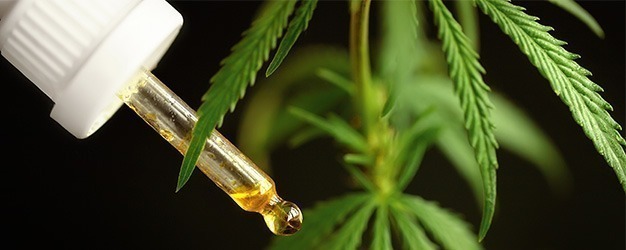
[vc_row][vc_column][vc_column_text]
Check out our monthly Life Sciences Newsletter, which gathers information on recent legislation, news, public consultations and bills related to the Brazilian health and agriculture sectors.
For more information, please contact our lawyers.
Enjoy your reading!
Demarest’s Life Sciences Team
[/vc_column_text][vc_empty_space height=”40px”][/vc_column][/vc_row][vc_row][vc_column][vc_column_text]

Anvisa – Brazilian National Health Regulatory Agency
Decision authorizes the import of Cannabis plant derivatives for medicinal purposes
By a unanimous vote, the Collegiate Board of The Brazilian National Health Regulatory Agency (ANVISA) decided to allow the import of Cannabis plant derivatives for purification and acquisition of the phytopharmaceutical cannabidiol for pharmaceutical purposes.
The decision aimed to consolidate the understanding of Article 18 of RDC Resolution 327/2019, on the criteria for importing the forms of the Active Pharmaceutical Ingredient (“IFA”). The Collegiate Board understood that the import of Cannabis plant in its raw form is allowed, which enables the production of such IFA in Brazilian territory.
The most significant practical consequence of this decision is the reduction of costs in the production of drugs based on cannabidiol, which ultimately benefits the end consumer.
See the decision in full here.
Anvisa – Brazilian National Health Regulatory Agency
Preliminary decision authorizes homeopathic pharmacy to market cannabidiol-based drugs
In a preliminary decision published on July 13, 2022, the 1st Public Treasury Court of Ribeirão Preto/SP authorized a homeopathic pharmacy to market cannabidiol-based drugs and determined that the Municipality of Ribeirão Preto refrain from punishing the establishment.
The decision considers Article 53 of RDC Resolution 327/2019, which sets forth that cannabis products must be prescribed exclusively by pharmacies without manipulation, or drugstores, excluding homeopathic pharmacies. The court understood that ANVISA exceeded its regulatory powers, given that there is no current rule in force that justifies such distinction between establishments.
ANS – Brazilian National Supplementary Health Agency:
Judicial Decision Removes Taxation From The List Of Health Procedures And Events
The taxation on the list of health procedures and events was suspended through a trial court decision, in order to determine that the healthcare plan operator authorize and bear the treatment costs of a pregnant woman. The treatment was carried out through intrauterine surgical intervention to correct the baby’s encephalocele. The decision was rendered by the judge of the 2nd Municipality Court of Maringá, Paraná.
The operator had denied treatment on the grounds that it was not covered by the list of procedures of the ANS.
The judge decided that as the operator does not offer any other similar procedure for treating the pregnant woman, carrying out the surgery becomes mandatory, considering the severity of the case and that science is advanced enough to ensure the success of such procedure.[/vc_column_text][vc_empty_space height=”40px”][/vc_column][/vc_row][vc_row][vc_column][vc_column_text]LEGISLATIONS

Right To Have A Companion During Labor, Childbirth And Postpartum Guaranteed By Federal Law
The Brazilian Federal Law No. 11,108/2005 guarantees pregnant women’s right to have a companion during the labor, childbirth and postpartum periods. The maternity hospital must provide all necessary information and clarification on the procedure.
The pregnant woman can choose any companion regardless of degree of kinship. The legislation aims to ensure comfort, admission and safety for pregnant women throughout this period, which requires greater attention and care.
Bills
Proposals On Wage Floor For Nurses To Be Approved And Enacted
On July 15, 2022, after approval by the National Congress, Bill (“PL”) No 2,564/2020 was sent for approval of the Brazilian President. The project establishes the monthly wage floor of BRL 4,750.00 for nurses, BRL 3,325.00 for nursing technicians, and BRL 2,375.00 for assistant nurses and midwives. Such wage floors are valid for public and private professionals.
According to the Chamber of Deputies Working Group, the new wage floors will result in an impact of BRL 16 billion per year on the public and private sector; however, the source of funding for this amount remains undefined. As a result, the Brazilian President stated his intention to sanction the Bill with line-item vetoes.
In parallel, Constitutional Emendation 124/2022 was enacted by the National Congress on July 15, 2022. The proposal aims to establish wage floors as a constitutional right, determining that the wage parameters for these categories be established by a federal law, thus rendering PL 2564/2020 effective.
Telehealth Regulation To Be Analyzed By The Federal Senate
On July 05, 2022, PL 1998/2020 was approved by the Brazilian Committee on Social Affairs (“CAS”) and is pending examination by the plenary of the Federal Senate. The project regulates telehealth services and actions, amending Law No. 8,080/1990, which provides for all health services.
The proposal is intended to establish telehealth care in Brazil as a permanent practice, ensuring autonomy to the health professional and facilitating access to health care. It is important to highlight that Article 26-D of the proposal imposes responsibility for technical standardization to federal professional inspection councils.
Concurrently, the Committee also examined PL 4223/2021. The proposal is similar, providing for telehealth care services in the country within the framework of the Brazilian Unified Health System (“SUS”) and the supplementary health system.
Project Of Self-Control Programs For Agribusiness Receives 46 Amendment Proposals
During the month of July, 46 amendments to PL 1,293/2021 were proposed. The project is under discussion in the Federal Senate and provides for self-control programs for private agents regulated by the agribusiness defense. In addition, the private sector will now be responsible for monitoring and complying with health standards in food production.
The Committee on Agriculture and Land Reform of the Federal Senate has approved the project, and the plenary will now discuss the proposed amendments. The main proposed PL amendments consist of the delimitation and monitoring of production by the Ministry of Agriculture, Livestock and Food Supply (“MAPA”), given that the initial version of the project imposed a large part of the monitoring responsibility on private agents.
Bill On The List Of Supplementary Health Procedures And Events Proposed By The House Of Representatives
On July 13, 2022, PL 2,033/2022 was proposed, which provides for the list of supplementary health procedures and events of ANS. The initial draft of the project, by the Working Group of the House of Representatives, addresses more comprehensive provisions than the decision of the Superior Court of Justice on the “exhaustive list of procedures”.
The Bill determines that the list of mandatory coverage procedures act as a basic reference for private health care plans, and that the range of such coverage be published in a rule by the ANS and updated following each incorporation.
In addition, other procedures not included in the list are expected to be covered, provided that (inclusive in paragraph 13 of Article 10 of Law No. 9,656/1998):
- there is evidence of its effectiveness, in light of health sciences, based on scientific evidence and therapeutic plan; or
- there are recommendations by the Brazilian Committee for Incorporation of Technology in the Brazilian Unified Health System (“CONITEC/SUS”), or authorization from ANVISA, or even recommendation by at least one (1) internationally renowned health technology assessment entity, such as: The Food and Drug Administration (“FDA”), the European Health Union (“EHU”), the Scottish Medicines Consortium (“SMC”); England’s National Institute for Health and Care Excellence – (“NICE”); Canada’s Drug and Health Technology Assessment- (“CADTH”); Australia’s Pharmaceutical Benefits Scheme (“PBS”) and Medical Services Advisory Committee (“MSAC”), provided that they are also approved in their countries.
Despite the judicial determination regarding the exhaustive list of procedures, the Bill establishes comprehensive provisions and criteria on the coverage. The Bill was proposed without any public consultations on the subject, and is under discussion by the plenary.
ANVISA – Brazilian National Health Regulatory Agency
Changes In Food Production Regulation
On July 06, 2022, the Collegiate Board of ANVISA published 18 food-related Resolutions, which will take effect on September 01, 2022. The main topics reviewed and amended provide for health requirements for food production, labeling of packages and food composition.
- Topic – Health requirements for the production of food substances: the amendments aim to ensure safer production parameters for industrialized food, coffee, salt, and sugar, among others. Requirements for nutritional enrichment and restoration of foods were also amended;
- Topic – Labeling and nutritional information of foods: the new labeling rules aim to provide a clearer understanding of nutritional information for foods, ensuring a more transparent relationship with the consumer;
- Topic – Food composition: the review of this legislation aims to improve safety in food production, establishing maximum limits for contaminants, microbiological standards and risk assessment.
Check out our Client Alert that describes in detail the provisions of such regulation amendments.
ANVISA – Brazilian National Health Regulatory Agency
Amendments In The Regulation Of Medications
In addition to changes in food regulation, on July 06, 2022, ANVISA also published Resolutions of its Collegiate Board and a Normative Instruction within the scope of medications. The amendments encompass phytotherapeutic medications, probiotics, industrialized dynamized medications, and even the use of human tissues for therapeutic procedures.
Below are the normative amendments:
- Phytotherapeutic medications: RDC Resolution 708/2022 which provides for post-registration changes in phytotherapeutic medications and traditional phytotherapeutic products;
- Probiotic medications: RDC Resolution 718/2022 which provides for the registration, changes and registration revalidations of probiotic medications;
- Industrialized dynamized medications: RDC Resolution 721/2022 which provides for registration, renewal, post-registration changes and notification of industrialized dynamized medications;
- Human tissue for therapeutic use: RDC Resolution 707/2022 establishes good practice standards on the use of human tissues for therapeutic use;
- Production of pilot batches of medications: Normative Instruction (“IN”) 158/2022 establishes quality and safety parameters on the production of pilot batches of medications that will be produced on an industrial scale.
These regulatory amendments came into force on August 01, 2022, and companies in the sector must adapt their production and registration processes, in addition to their quality parameters.
ANVISA – Brazilian National Health Regulatory Agency
Regulation To Review The Application And Manipulation Of Lenalidomide
On July 15, 2022, RDC Resolution 735/2022 and IN 163/2022 were published, which provide for control and manipulation of the substance lenalidomide. This drug is used in the treatment of cancer patients.
The Resolution prohibits the supply, trade, distribution and dispensing of lenalidomide-based medication until the respective Pregnancy Prevention Plan (PPG) previously approved by ANVISA is effectively implemented by the record holder. Manipulation of the Active Pharmaceutical Ingredient in the form of lenalidomide is also prohibited.
The Normative Instruction defines the special control criteria for studies and research, including laboratory tests with lenalidomide. Among such criteria is a special authorization from ANVISA and the submission of the risk minimization measures adopted.
These regulatory amendments came into force on August 01, 2022.
ANVISA – Brazilian National Health Regulatory Agency
Rule That Regulates Software Employed As A Medical Device Comes Into Force
On July 01, 2022, RDC Resolution 657/2022 came into force, which provides for the regularization of software as a medical device (“SaMD”).
Medical devices are products that can be used for in vitro diagnosis of patients. The Resolution authorizes the internal development of SaMD. Donating or marketing SaMDs without proper authorization by ANVISA is prohibited.
In order to ensure a safe and effective use of the equipment, the label and instructions for use must provide information on updating procedures, alerts and divergences, information on software operability and cyber security techniques.
Finally, it is worth highlighting that this topic had already been briefly provided for in RDC Resolution 185/2001, but the new resolution provides for the specific technical employment of the SaMD.
ANS – Brazilian Supplementary Health Agency
Four Professional Categories Will Have Unlimited Coverage For Beneficiaries
On July 13, 2022, Normative Resolution 541/2022 was published, which provides for the List of Procedures, in order to amend the list of procedures provided by psychologists, speech therapists, occupational therapists and physiotherapists.
The Collegiate Board decided that these categories have unlimited coverage for healthcare plan users and excluded conditions for appointments with these professionals. The Resolution came into force on August 01, 2022 and represents the 9th update in the List of Procedures in 2022.
MAPA – Ministry Of Agriculture, Livestock And Food Supply
New Legislation Covers Possibilities Of Agribusiness Financing
On July 21, 2022, Law No. 14,421/2022 was published, which provides for changes in provisions that ruled the Rural Product Note (“CPR”). The legislation has changed the rules of rural product notes, the agribusiness law, the expropriation law of and the law of public records.
Below are the main changes in such legislations:
- Law No. 8,929/1994 – Rural Product Note: the law sets forth more comprehensive definitions regarding persons entitled to issue the CPR, which can be a rural producer, an individual or legal entity, including those with a corporate purpose that comprises rural production in a non-exclusive way, and individuals of legal entities who benefit from or foster the industrialization of rural products;
- Law No. 13,986/2020 – Agribusiness: the law extends the guarantee by the Solidary Guarantee Fund, allowing any financial operation linked to rural business activity, including those resulting from activities and those carried out in the capital market, to be guaranteed by the fund. The previous provision only ensured guarantee for credit operations carried out exclusively by rural producers;
- Decree-Law No. 3,365/1941 – Expropriations: the law was amended to include a provision allowing the immediate transfer of ownership of a property during the expropriation process, regardless of express consent from the expropriated person. Such amendment aims to provide greater security to the creditor in receiving the debt;
- Law No. 6,015/1793 – Public Records: Finally, the law was amended in order to include the possibility of registering rural segregated property in guarantee, to ensure publicity of the guarantee and greater legal certainty to the creditor.
In addition to facilitating the process of granting credits and guarantees, it is important to highlight that a provision has been included in the Rural Product Note Law to allow fundraising for products obtained from activities related to conservation and environmental preservation. Such amendments came into force on the date of their publication and the instruments for fundraising can already be used.
MAPA – Ministry Of Agriculture, Livestock And Food Supply
Rule Reinforces Exemption From Informing The Expiration Date For Fresh Vegetable Products
On July 22, 2022, Ordinance 458/2022 was published, which provides for the exemption from informing the expiration date for fresh vegetable products, in view of the particular characteristics of conservation and consumption of these products.
The exemption reinforces the recommendations of ANVISA in RDC Resolution 259/2002., which already provided for the exemption from informing such expiration dates. According to MAPA, this measure prevents food waste, since in many cases the expiration date for fresh vegetables does not match the true quality of the food.
Consequently, the current rule only exempts fruit producers from indicating their expiration dates. Commercial establishments must continue to meet the minimum quality requirements for fresh vegetable products. [/vc_column_text][vc_empty_space height=”40px”][/vc_column][/vc_row][vc_row][vc_column][vc_column_text]PUBLIC CONSULTATIONS AND HEARINGS:

MAPA – Ministry Of Agriculture, Livestock And Food Supply
Proposal For Regulation On Registry, Employment And Inspection Of Products Of Veterinary Use Is Subject Of Public Consultation
On July 25, 2022, a Proposed Decree for establishing a regulation on the registry, employment and inspection of products for veterinary use, of related establishments, and other provisions, was submitted for public consultation.
The main provisions of the initial Proposed Decree are:
- The registry procedures for the establishment that manufactures, manipulates, fractions, bottles, labels, performs quality control, trades, stores, distributes, imports or exports products of veterinary use or their active ingredients;
- The criteria and parameters of good practices for facilities and manufacturing of the products;
- The possibilities for outsourcing the manufacturing, quality control or storage of veterinary products;
- The responsibilities of the technical officer who will monitor the activities of the establishment;
- The parameters for inspection of activities by MAPA, mandatory information in the product label and other procedural aspects, such as the import and transfer of registered ownership .
Contributions may be sent by October 08, 2022 via the Normative Acts Monitoring System.
CFM – Federal Medicine Council
Public Consultation On Updating The Resolution On The Medicinal Use Of Cannabidiol For Treatment Of Epilepsies
Between July 01 and 20, 2020, a public consultation was carried out to update Resolution 2,113/2014, which provides for the medicinal use of cannabidiol for treatment of epilepsy in children and adolescents who are unresponsive to conventional treatments.
The resolution precedes the ANVISA rule that regulates the therapeutic use of cannabis-based drugs and will be amended in order to adapt the regulation of epilepsy treatment to current scientific research, standards and case law on this topic.[/vc_column_text][vc_empty_space height=”40px”][/vc_column][/vc_row]
Related Areas














